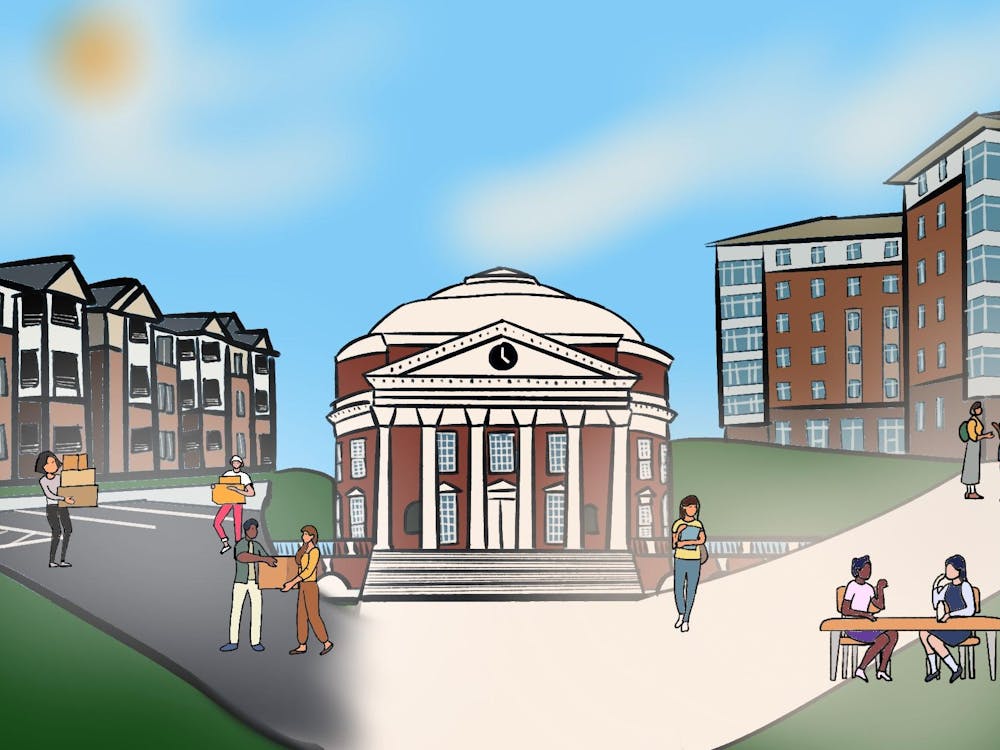The University offers 12 Massive Open Online Courses on the Coursera platform — some current and some upcoming. The University first offered MOOCs last fall with a whirlwind of controversy surrounding them. A year later, we examine the potential successes and failures of MOOCs, as well as their uncertain future in the competitive and expensive world of higher education.
The obvious drawback to MOOCs is economic. The University receives no revenue from them, and they require professors to devote extensive hours of work for no additional pay. Physics Prof. Lou Bloomfield expressed a great deal of satisfaction from creating the “How Things Work” MOOC, but questions whether MOOCs will be sustainable for the future, having seen first hand the amount of time and energy necessary to create one.
One may ask: if the University does not make any money from MOOCs, and nobody can earn credit from taking a MOOC, does anyone really benefit from them? The University has entered the world of free online education, under the impression that it is an innovation of unrealized potential, but this motivation is perhaps short-sighted. Lou Bloomfield was quoted as saying, “In our current society, almost no one pays for education itself, they pay for academic credit.” This seems to be somewhat of a cynical statement, but in many cases a true one — the objective of earning a degree is to point to it on a job application. However, an analysis this simplistic ignores the inherent value of learning.
We must not dismiss the idea MOOCs completely, though, for they are offering something valuable to the general population. Here, we may revisit our discussion about making higher education truly public. Knowledge should not be reserved for those who can pay for it. But what is more valuable — the learning, or the degree that comes with it? That question may depend on whom you ask. For some, learning may be a leisure activity. For others, it may be a matter of survival.
It seems as though a lot of MOOCs are designed for the former group. In your spare time, sit down and soak up some knowledge about John F. Kennedy, about Buddhist meditation, about “The Worlds of Historical Fiction.” There is no fault in a desire to learn about these subjects for the sake of the knowledge itself. In fact, such pursuits should be encouraged.
But we must not forget about people in the latter group, who may not be able to get better than a low paying job, because they do not have enough education. Certain MOOCs offered by the University seem to contain more practical knowledge that could help resolve issues of income, at least judging from their titles — “New Models of Business in Society,” “Smart Growth for Private Businesses” and “Design Thinking for Business Innovation.” We can also tell from the titles, however, that the focus seems very narrow.
Bloomfield’s assessment may be right. Perhaps more people do pay for a degree rather than an education. To offer MOOCs makes the University’s philosophy consistent with the liberal arts ideology — that knowledge extends across a breadth of disciplines that are worth knowing simply for their own sakes. We want to promote this ideology. But we also have to find a balance between what is ideal and what is practical. If there is only a limited amount of time and energy we can devote to learning with no cost, perhaps we should be more focused on the people who do not yet have the privilege of learning in their leisure time. Making public education truly public should not just be about its aesthetic qualities; it should be about maximizing its utility for society as a whole.






